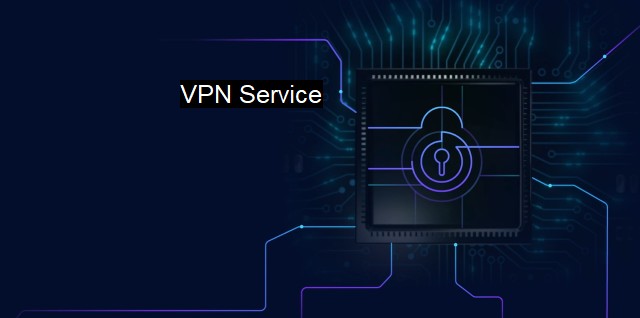What is VPN Service?
Virtual Private Network (VPN): Strengthening Privacy and Security in the Age of Cyber Threats
VPN Service, standing for Virtual Private Network service, is an essential tool in the domain of cybersecurity and antivirus protection. It contributes to online security and privacy by creating a private network from a public internet connection, thus shielding your online activities from prying eyes.In the ever-evolving arena of internet accessibility and connectivity, cybersecurity is simultaneously gaining importance like never before. While antivirus software plays an instrumental role in protecting a system or a network from malicious programs trying to infect the network, it alone can't protect from all online threats. Here comes the significance of VPN service.
A VPN service provides an encrypted connection to the internet, thus ensuring that user data remains confidential and inaccessible to external agencies, hackers, or cybercriminals. VPN service works by hiding the user's IP (Internet protocol) address, making it tough for someone to track their online activities while safeguarding their critical data.
We might consider this function of VPN service as a kind of digital camouflage. When you connect to a VPN server, it creates a private tunnel to reroute web traffic from your device to the final destination over the internet. This mechanism prohibits not only hackers but also internet service providers (ISPs) from peeping into your online activities or intercepting your sensitive information while it's transmitted over the network.
a VPN service adds invaluable benefits. Besides just hiding IP addresses, it can secure connections even on public Wi-Fi networks which often lack proper security measures, making them ideal grounds for cybercriminals. Meanwhile, VPN services also pave the path for anonymous web browsing, enabling users to access blocked or region-restricted content by bypassing internet censorship.
Yet, a VPN service should be used as a part of a broader range of measures to ensure online safety. Each VPN has a set of protocols and encryption standards ruling how they safeguard user data. These encryption protocols such as OpenVPN, IKEv2, L2TP, PPTP, and more help to secure the data sent and received over a VPN. The higher is the level of encryption, the more secure the connection becomes.
VPN services protect devices from specific types of cyber attacks such as man-in-the-middle (MitM) attacks. MitM attacks are where a malicious actor intercepts communication between two systems with the intention of eavesdropping, modifying or stealing information. VPNs prevent these attacks by effectively encrypting and securing the information transferred between the systems.
In sync with antivirus software, VPN services thus offer protection encompassing more than just malwares and viruses. Antivirus software typically focuses on protecting systems from malware attacks, whereas a VPN service safeguards your online data from various kinds of cyber threats, hence they complement each other to provide a layered approach to cybersecurity.
Today, digital users are realizing this massive value addition of VPNs and integrating VPN service as a standard component of their cybersecurity tool kid. Safer cross-border transactions, confidential business communications, private streaming, or just protecting your financial and personal data – the reasons for using a VPN service are many.
An enhancement in VPN technology has also given rise to personal VPNs, designed specifically for individual users, which magnify the privacy benefits. Even with growing instances of phishing, malware, and data breach threats, personal VPNs fortify users' digital footprints, making each of their online steps more secure.
To sum up, VPN and antivirus software stand as two critical pillars of cybersecurity, serving complementary functions – while the antivirus shields the internal integrity of systems and data by warding off malware and spyware, the VPN brings in an external layer of protection, preserving the confidentiality of transmitted information against potential cyber threats.

VPN Service FAQs
What is a VPN service?
A VPN service is a security tool that enables users to create a private and secure connection to the internet. It allows users to access the internet anonymously by hiding their IP address and encrypting their online activities.Do VPN services protect against cybersecurity threats?
Yes, VPN services can protect against cybersecurity threats such as hacking, phishing, and malware. They encrypt data and make it difficult for cybercriminals to intercept and steal sensitive information.What are the benefits of using a VPN service?
Using a VPN service has several benefits, including protecting your online privacy and security, accessing geo-restricted content, and bypassing internet censorship. It also helps to protect your personal information from hackers and other cyber threats when using public Wi-Fi networks.How do I choose the best VPN service?
To choose the best VPN service, consider factors such as speed, security, privacy, and reliability. Look for a VPN service that offers strong encryption, a wide range of server locations, and a no-logs policy. Additionally, read reviews and check the reputation of the VPN service to ensure it is trustworthy and reliable.| | A | | | B | | | C | | | D | | | E | | | F | | | G | | | H | | | I | | | J | | | K | | | L | | | M | |
| | N | | | O | | | P | | | Q | | | R | | | S | | | T | | | U | | | V | | | W | | | X | | | Y | | | Z | |
| | 1 | | | 2 | | | 3 | | | 4 | | | 7 | | | 8 | | |||||||